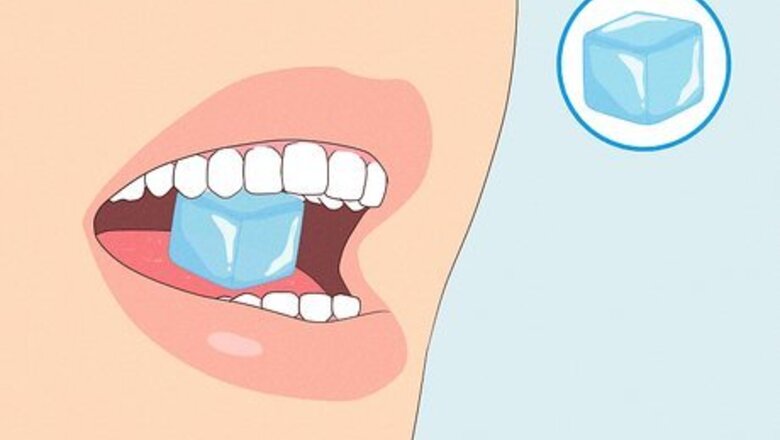
views
- Place an ice cube on the affected area or drink cold liquids from a straw for fast relief.
- Swish your mouth with salt water twice daily to soothe inflammation.
- Use a soft bristle toothbrush to gently scrub itchy, inflamed taste buds to remove food or bacteria that may be irritating your tongue.
Quick Relief for Swollen Taste Buds
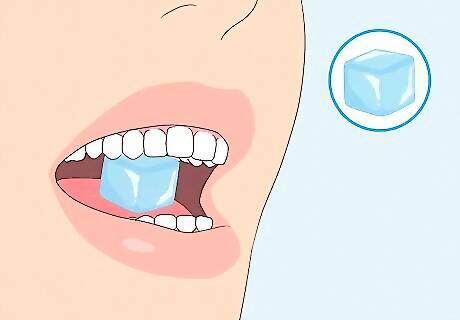
Press an ice cube against your tongue. When your taste buds are inflamed, it can help to cool them down with a bit of ice. Pop an ice cube in your mouth and hold it against your tongue as it melts. If it’s too cold, you can spit it out; otherwise, keep it there until it’s gone. Try sucking on an ice cube 2 to 3 times per day until your taste buds feel better.
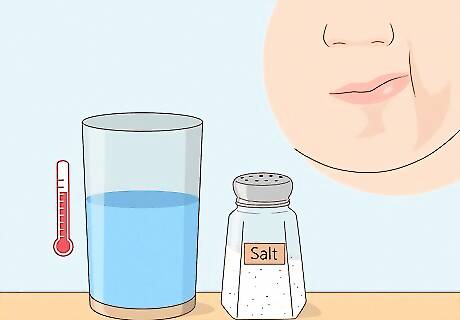
Try a saltwater mouth rinse twice a day. Mix hot water and 1 tbsp (14 g) of salt in a small bowl. Take a large sip of the water and swish it around your mouth for as long as possible, then spit it out. Repeat this until your taste buds feel a little better. Salt has anti-inflammatory effects, so it can help to soothe your taste buds.
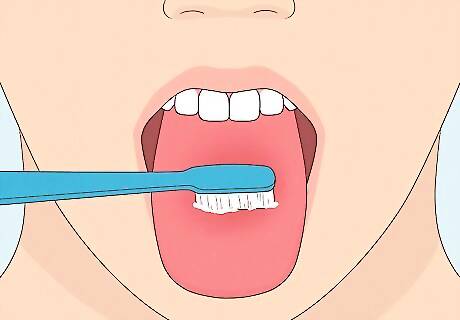
Brush your tongue with a soft toothbrush. If your taste buds are inflamed, they could be irritated by something in your mouth or on your tongue. Use a soft toothbrush and toothpaste to carefully brush your teeth, then lightly go over your tongue, too. Toothbrushes usually come in hard or soft bristles. Try to grab one where the bristles are soft, not hard and stiff, so you don’t irritate your tongue even more.

Drink cool drinks with a straw. To soothe your inflamed tongue, pour yourself a glass of cool water and grab a straw. Take slow sips, being sure to coat your tongue in the coolness of your drink for soothing relief. The straw helps direct the coldness of your drink onto your taste buds to numb irritation and reduce swelling.

Stick with water instead of alcohol or sugary drinks. Alcohol and drinks with lots of sugar in them, like soda and juice, can inflame your taste buds even more. Try to stick to drinking water as you heal your tongue to soothe it and make the swelling go away faster. Staying hydrated can also help prevent inflamed taste buds in the future.

Eat soft, soothing foods, like yogurt. Eating crunchy or hard foods can be tough when your taste buds are inflamed. Go for cool, creamy foods, like yogurt, smoothies, or pudding, until your tongue heals. Yogurt is usually mild in flavor, too, which makes it perfect for an inflamed or irritated tongue.
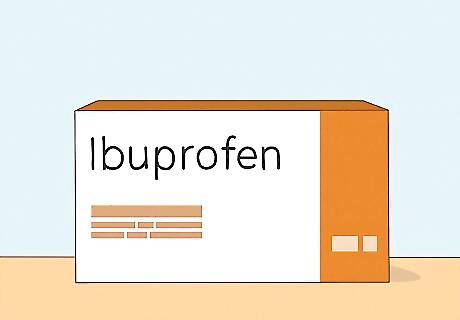
Take pain relievers. Anti-inflammatories, like ibuprofen and paracetamol, can help relieve the pain of your sore taste buds and make the swelling go down faster. Follow the dosage instructions on the bottle of your pain medication for quick relief. Find these pain relievers over the counter at most drug and grocery stores.
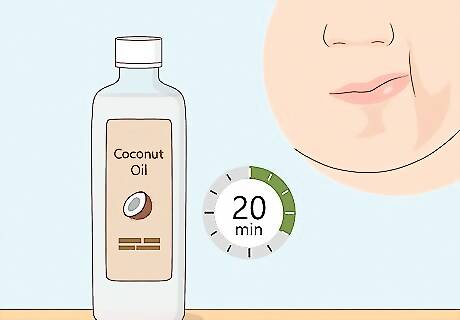
Try oil pulling with coconut oil. Oil pulling can help relieve pain from mouth sores and soothe irritation. Put 1 tablespoon (15 ml) of coconut oil in your mouth first thing in the morning before you eat. Slowly swish the coconut oil between your teeth for 20 minutes. When you’re finished, spit the oil out in a trash can. If your jaw hurts, it may mean you’re using too much oil or swishing for too long. Try using less oil and reducing the time to 5 to 10 minutes if your jaw aches.

Avoid spicy, acidic foods. Spicy and acidic foods may be the cause of your swollen taste buds, so avoid them when you can. Hot sauce, chili peppers, citrus juice, and heavy spices can worsen inflamed taste buds. If you often get swollen taste buds, try cutting back on how many spicy or acidic foods you eat. For instance, skip adding hot sauce to your morning eggs, opting for plain salt and pepper (or even ketchup) instead.
Preventing Inflamed Taste Buds
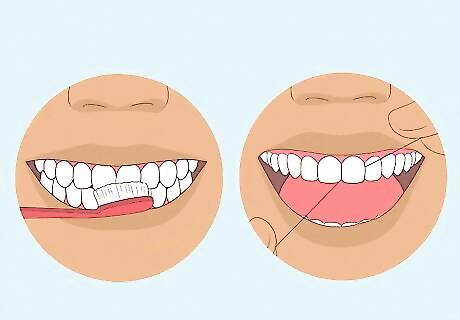
Brush your teeth and floss twice a day. Keeping your mouth healthy and clean helps your taste buds recover quickly and prevent swelling. Brush your teeth once in the morning and once before bed. For an extra clean feeling, use mouthwash to remove any lingering bacteria. If you’re having trouble with mouth hygiene (consistent bad breath, mouth ulcers, or cavities), talk to a dentist about what might be causing your problem.
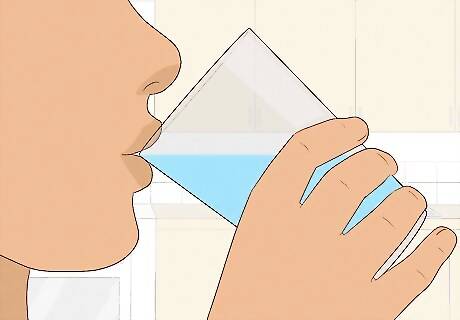
Stay hydrated by drinking plenty of water. A dry mouth could be the cause of your inflamed taste buds. Keep your mouth lubricated by drinking water throughout the day. If you deal with dry mouth regularly, talk to your doctor, as it may be the symptom of an underlying problem. Some medications can cause dry mouth, so talk to your doctor about your medical history and symptoms.

Avoid extremely hot and cold foods. A sip of hot coffee or a bite of cold ice cream can inflame your taste buds or make them really sore. If you often get inflamed taste buds, try to avoid temperature extremes and gravitate toward room-temperature foods. Staying away from hot or cold food can also help your inflamed taste buds heal faster.
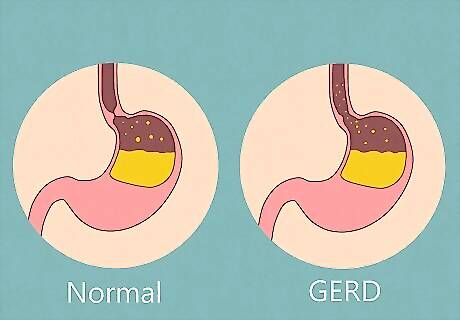
Treat acid reflux with medication if you need to. If you have acid reflux or GERD (when the acid in your stomach travels up through your esophagus), acid can make its way into your mouth and cause inflamed taste buds. If this happens consistently, try an over-the-counter medication or talk to your doctor about a prescription to help calm your stomach after a meal. As a natural alternative, try staying upright after eating instead of lying down. This can help settle your stomach, so you don’t have as much acid reflux.

Stop smoking if you do. The chemicals in cigarettes can irritate your taste buds, making them more likely to swell. If you have inflamed taste buds a lot, try cutting back on cigarettes to see if that helps. Not smoking also has a lot of other health benefits, so it can help your overall health as well.




















Comments
0 comment